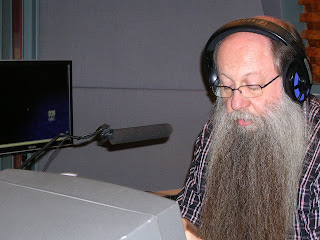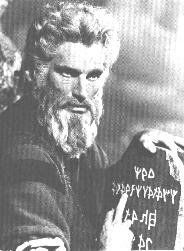Schweitzer and Barth on Animals
 Two significant theologians with opposing views, Albert Schweitzer and Karl Barth, make important contributions to our discussion on animals. [The comparison of these two thinkers is drawn from Andrew Linzey. Animal Theology. (Urbana and Chicago: University of Illinois Press, 1995), 4 –8.]
Two significant theologians with opposing views, Albert Schweitzer and Karl Barth, make important contributions to our discussion on animals. [The comparison of these two thinkers is drawn from Andrew Linzey. Animal Theology. (Urbana and Chicago: University of Illinois Press, 1995), 4 –8.]
Schweitzer understood “self-devotion to the world to be self-devotion to human life to every form of living being with which it can come into relation.” I must show to “all will-to-live” the same reverence as I do to my own. This reverence for life is not, for Schweitzer, one principle among many, but the sole principle of the moral. Love and compassion, for example, are simply expressions of this reverence. Life is itself sacred or holy and must therefore be responded to with reverence.
The ethical person, for Schweitzer, “tears no leaf from a tree, plucks no flower, and takes care to crush no insect.” He places a worm found on the roadside back into the soil. He would rather suffer in a stuffy room when working by lamplight than open the window and see a mosquito perish when attracted to his light. He picks insects out of puddles to give them another chance at survival. Anticipating the ridicule such a stance may elicit from an incredulous world, Schweitzer responds, “It is the fate of every truth to be a subject for laughter until it is generally recognized.”
The seemingly impractical implications of such a position are moderated somewhat by the reminder that Schweitzer is concerned not to avoid injury to life under any and all circumstances, but when such injury if easily avoidable. “Beyond the unavoidable, I must never go, not even with what seems insignificant.” He tells us only “what reverence requires without the pressure of necessity.”
This reverence for life is not, for Schweitzer, obedience to moral law. It is more like a religious experience or approach to life. Paul Tillich in "Morality and Beyond" held that “a moral act is not an act in obedience to an external law, human or divine [rather it is] the inner law of our true being, of our essential or created nature, which demands that we actualise what follows from it…The religious dimension of the moral imperative is its unconditional character.” This reminds me of C. S. Lewis who, somewhere, states that concepts of “right” and “wrong” are not discussed in heaven; they are laughed at! Those who dwell in heaven need not make some considerations because they act in accordance with their true nature, in ways that are appropriate to redeemed existence.
1. Barth rejects Schweitzer’s idea that vegetable life deserves the same careful reverence and respect as animal life. Each animal is a unique and separate being, whereas the use of plants is a use of its surplus material (eg the consumption of fruits and vegetables), which does not totally destroy the existence of the food-bearing plant. One cannot eat a dog without annihilating it. One can, however, eat an orange without annihilating the orange tree.
2. Reverence and responsibility properly belong to human-to-human relationships. Consideration of animals is serious but secondary.
3. Schweitzer does not appreciate the moral distinction between animals and humans because he does not grasp the meaning of the Incarnation. God “reveals, entrusts, and binds” himself to the rest of creation through taking, not plant or animal, but human form.
Schweitzer's view then seems more Hindu with its affirmation of the value of all sentient beings as part of the life force of the universe, and Barth's more Christian, with its idea of a covenantal bond between God and humanity established through the Incarnation.
 In Animal Theology, Andrew Linzey, of Oxford University, a leading theologian and ethicist who has written extensively on the rights of animals asks three questions: 1. Should we show reverence, or respect, to animals? 2. Do we have a responsibility to animals? and 3. Do animals have rights? He proposes that all three questions should be answered in the affirmative.
In Animal Theology, Andrew Linzey, of Oxford University, a leading theologian and ethicist who has written extensively on the rights of animals asks three questions: 1. Should we show reverence, or respect, to animals? 2. Do we have a responsibility to animals? and 3. Do animals have rights? He proposes that all three questions should be answered in the affirmative.




















